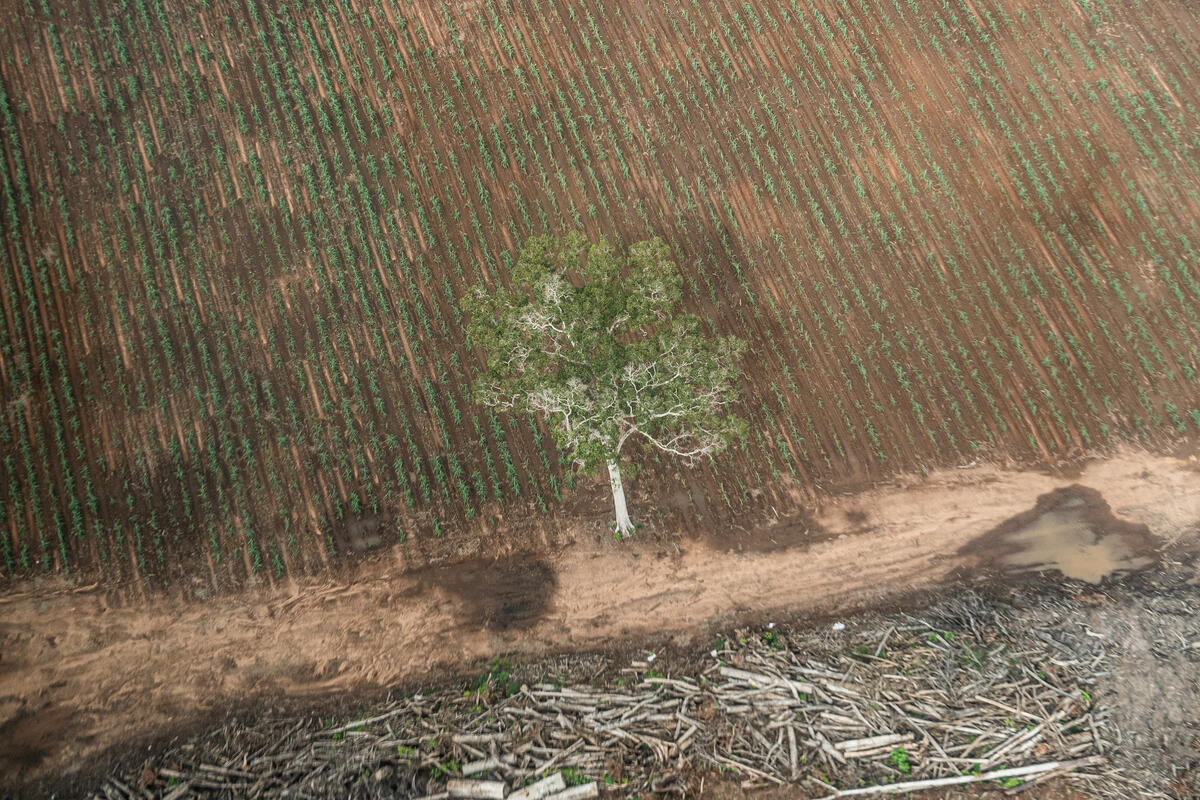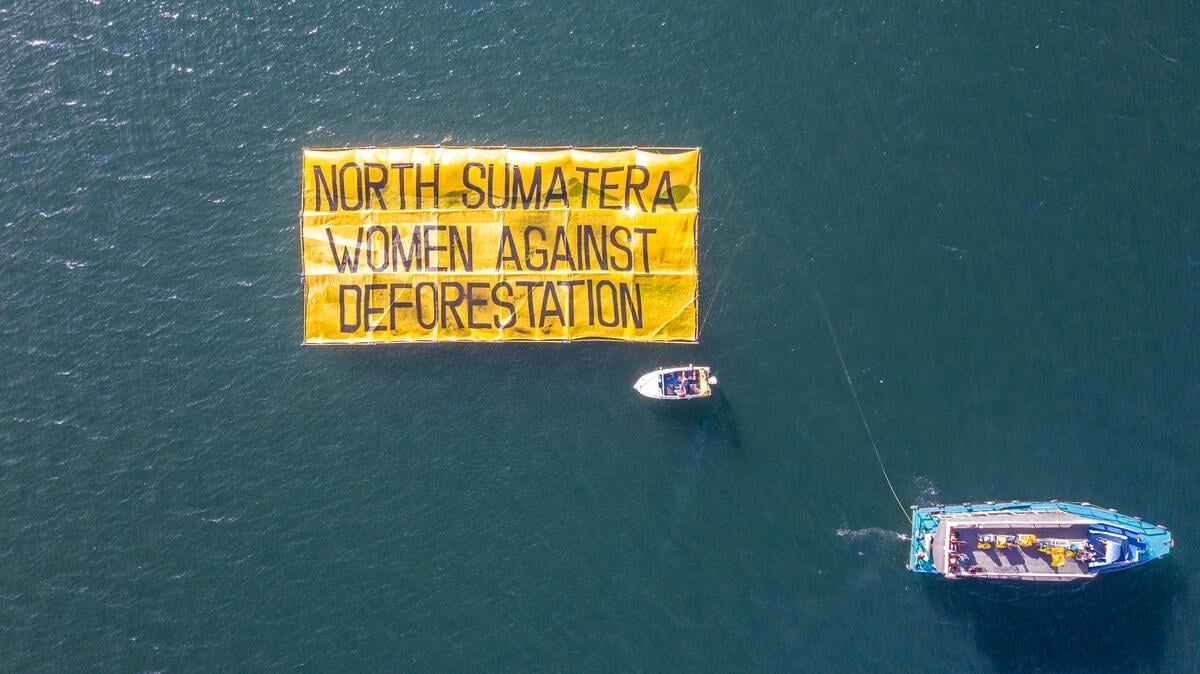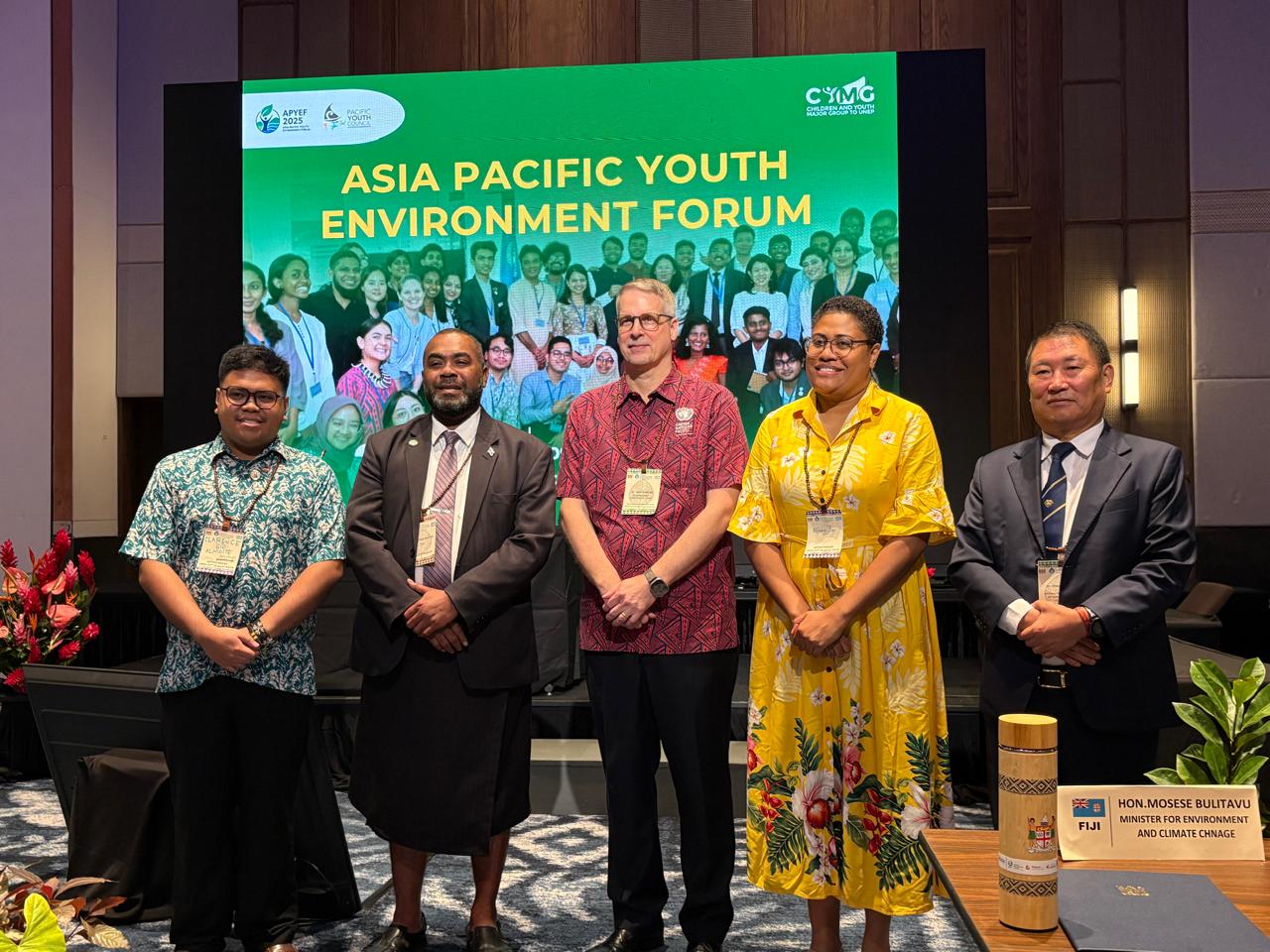“We, the children of Samui, are grateful for the nature for providing us food and shelter. We love nature, and will come together to do our best to protect it. We, the children of Samui, a new generation of youths who are energy-efficient and care for the environment, promise to cut down consumption of electricity and petrol. We will turn off and unplug electrical appliances after use, and travel smart. We will do these for a better, greener world for ourselves, and for the community.”
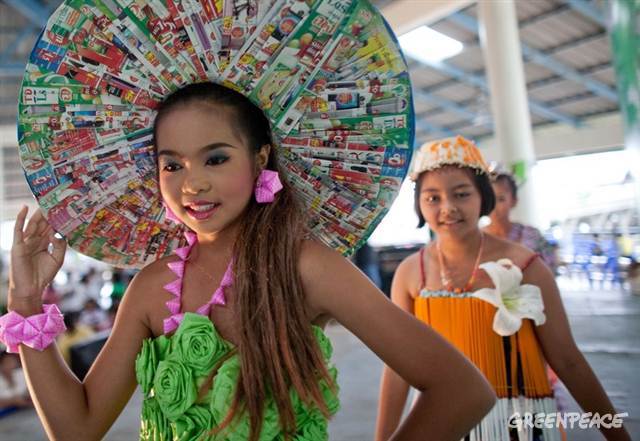
This is a vow written by the students’ representatives from schools all around the Samui Island. The vow was recited by the children in the event “Energy-smart Samui Kids” at Na Ton Beach, Samui Island, Surat Thani last September 25.
On that day, more than 200 children from the schools in Samui went on a field trip and visited our flagship, the Rainbow Warrior, anchoring not far from Na Thon Beach. The events, designed to be both educational and fun, include exhibitions about global warming, renewable energy, energy conservation, and the effects of oil spills from offshore platforms and oil tankers, evident on photos from recent events in the past few years. There was also a fashion show of clothes made entirely out of recycled products (each school designed their own costumes using only reused materials), a quiz game, a garbage sorting game, singing, and a little ceremony where the children pledged to protect the environment. The Siam Gulf Preservation Network Group from Samui, Pa-ngan, and Tao Island, Koh Samui Municipality, the Amphur, the tourism association, hotel association and the teachers’ association, organized this event especially to help educate and inspire the next generation who will be responsible for the future conservation of the island. This activity happens at a time when Samui communities are fighting against a petroleum exploration project that is due to be built near the three islands.
After talking with the locals we found out that the growth of the tourism industry has negative effects towards the environment, namely garbage problems, water pollution, sea and shore pollution, coral bleaching, and a decrease in marine biodiversity. Sadly, tourism has cost the area its natural abundance. Recently however the tourism industry and the local community have realized the severity of the problems and have been more active in conserving nature. Many institutions have developed beyond being “environmentally conscious” into being “active environmentalists”, including in the tourism business where many hotels have decided that being environmentally friendly is their unique selling point. In education, initiatives like the “Low Carbon School” project, aim to educate and teach practical environment conservation to schoolchildren. This successful initiative, now involves 26 schools. The schools are coached by the said green hotels in supporting and educating students. The local administrative bodies have also carried out strict environment measures, including better waste management, and have set a local action plan to tackle environment issues.
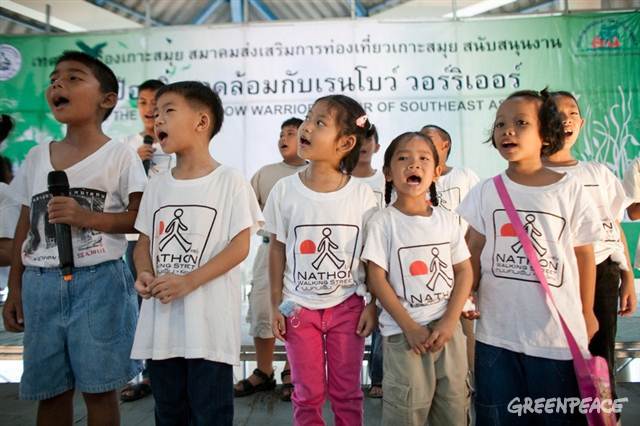
It is a good sign that the public sector, the local administration, and the tourism industry all share a common goal geared towards environment conservation and sustainable development. Unfortunately, there has been inadequate support from the government which has been rolling out development plans which are unsuitable for the provinces. For example, it granted concessions for petroleum exploration and production in areas where tourism is a major income generator and where communities still depend on natural resources for their livelihood. This is also true in Samui and other islands, where these projects are strongly opposed by the locals, and can do no good for the area.
I asked a local student, “What do you think will happen if an oil rig is built near Samui Island?” and got the answer “the tourists come to Samui because it is beautiful and the water is clear. The water is good for swimming and scuba diving. If the water smells of oil, nobody would want to come here anymore. If nature continues to be spoiled, the number of tourists will also decline and will choose other destinations over Samui. If that happens, we can’t make a living. Here, tourism and farming are very important, so we must protect our environment.” His answer put a grin on my face. Why, even a primary student is smarter and more eco-conscious than PhD academics and government bureaucrats!
Ply Pirom is the Country Programme Manager of Greenpeace Thailand

